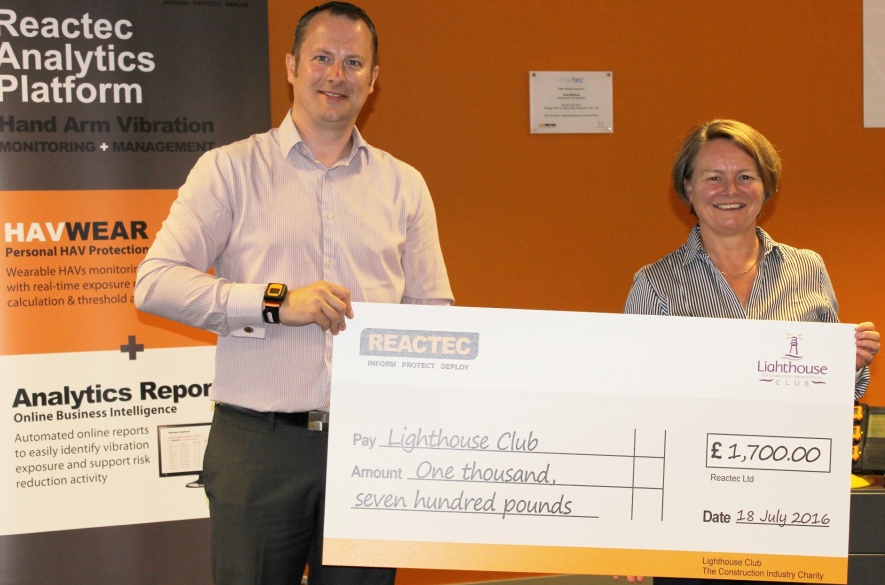Reactec, the market leader in monitoring and management platforms for hand and arm vibration (HAV), has raised £1700 for UK construction charity The Lighthouse Club. The sales team at Reactec began fundraising on World Day for Safety and Health at Work on 27th April and continued to raise funds until the 21 June when the industry’s main UK Health & Safety event – the SHE show – took place.
Reactec’s donation will go to the construction charity The Lighthouse Club which provides financial advice and assistance to the construction community and also promotes initiatives aimed at avoiding accidents and improving safety on construction sites.
Commenting on the donation, Jacqui McLaughlin, Chief Executive of Reactec said: “At Reactec we work hard to help employers promote a workplace culture that creates a safe and, with equal importance, a healthy environment for their workers and in particular those who use vibrating equipment. We are proud to work with The Lighthouse Club and are delighted to be presenting our donation of £1700 to the charity today.”
Alan Smith, Chairman from the East of Scotland Branch of the Lighthouse Club
said: “I want to thank Reactec for the very generous donation received for the Lighthouse Club. Reactec’s HAVWEAR devise is truly ground breaking, demonstrating Reactec’s real knowledge of the construction industries requirements. Through this innovative approach to monitoring Hand Arm Vibration with the HAVWEAR devise, it provides the construction industry with a solution to the industrial disease white finger for which there is no cure.”
Edinburgh-based Reactec is the UK market leader in the provision of monitoring devices and a management information reporting platform for Hand Arm Vibration (HAV) risks – the cause of one of the most common industrial diseases in the UK, White Finger Syndrome or HAVS.
HAVs, which is also known as Vibration White Finger, is one of the most common industrial diseases in the UK. The condition is usually caused by the prolonged use of power hand tools, whose vibrations can damage the blood vessels, nerves, muscles and joints of the hand, wrist and arm. 300,000 people in the UK suffer from the condition, for which there is no known cure, only prevention.



